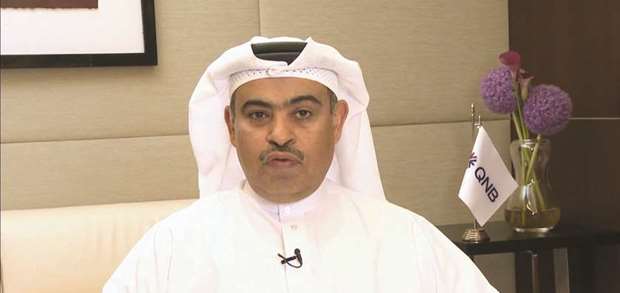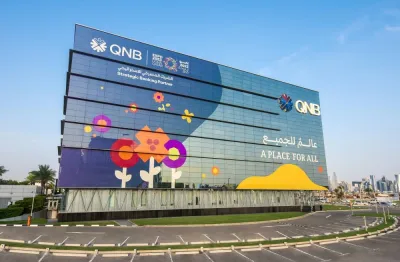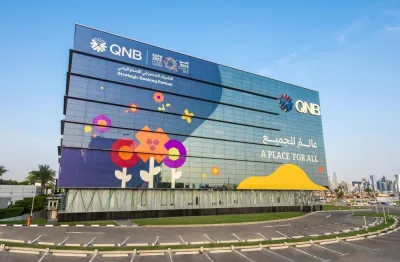QNB has absorbed the shock of last year’s Saudi Arabia-led blockade on Qatar and plans to push ahead with its expansion strategy.
The Middle East’s biggest bank by assets expects that profit will increase 5% to 7% this year, chief executive officer Ali al-Kuwari said in an interview. QNB will continue to diversify earnings by targeting Southeast Asia, while focusing on its main markets in Qatar, Egypt and Turkey, he said. QNB said on Tuesday that annual net income rose 6%, meeting analysts’ estimates, as the lender cut impairment charges. Operating income remained little changed from a year earlier.
“Some business people who were thinking of investing somewhere else are bringing their investment to Qatar,” al-Kuwari said at the bank’s headquarters in Doha on Wednesday. “We see many opportunities in food supply, logistics and transport.”
Qatar, which has been under a siege by Saudi Arabia, the UAE, Bahrain and Egypt since June, has found support from countries such as Turkey to keep its food supply and logistics sectors intact. The country’s huge currency reserves also helped cushion the impact on its economy and financial system.
QNB Capital, the lender’s investment-banking arm, won the mandate to advise on the initial public offering this year of Baladna Farms, a dairy producer that’s become known for flying thousands of cows during the first months of the blockade. The bank is in talks with other clients seeking to finance their expansion, al-Kuwari said, declining to provide details.
While the bank’s diversification outside of Qatar helped blunt some effects of the isolation, it also introduced other risks. The devaluation of Egypt’s pound shaved a percentage point off QNB’s 2017 annual profit growth, al-Kuwari said.
Another challenge is for QNB to maintain an efficiency ratio of 29%, he said. “To have other markets like Turkey, Egypt, Indonesia, it would be very difficult to maintain this level,” al-Kuwari said.
QNB was able to boost deposits in 2017, with most of the new funding in dollars, al-Kuwari said. The bank will continue to seek funding from around the world and still has more than half of a $17.5bn bond programme available that it can tap, he said.
“We already absorbed the shock,” he said. “We are operating our business as if this crisis will continue forever.”

QNB, the Middle East’s biggest bank by assets, expects that profit will increase 5% to 7% this year, according to chief executive officer Ali al-Kuwari.


